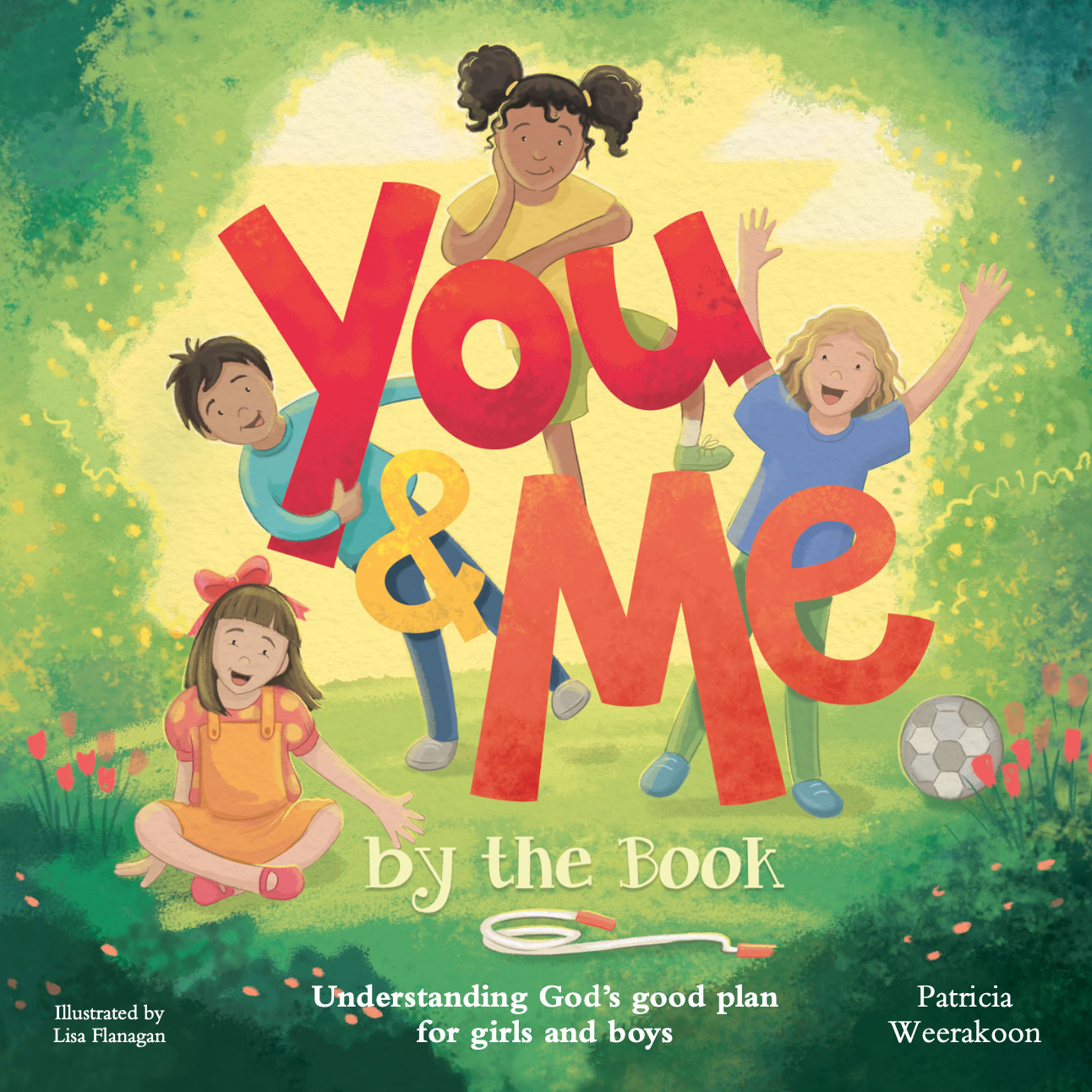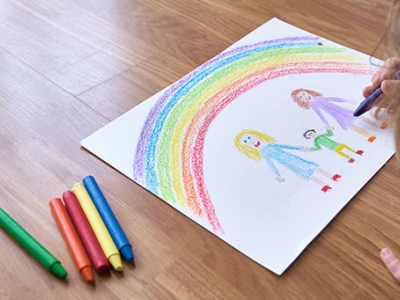
When Netflix comes to church
Entertainment versus edification.
The world I grew up in is vastly different from the world in which I am raising my children. Nothing highlights this more than our television habits.
I was born in the early 1980s, and my children were born in 2011 and 2015. When I was young, we only had one TV in the house. Children today have a choice of screens to use, with one household often having two televisions, two iPads, and two laptops, not to mention phones and other devices with streaming access!
Growing up with only one TV
Since we only had one TV when I was young, my parents would choose the evening TV shows, my brothers would choose the afternoon shows, and I would only get to choose first thing in the morning before anyone else had woken up. Children today have many options—if they can't agree on a show to watch together, they could watch their own show alone on an iPad in another room.
TV viewing in my youth was a communal activity. I have clear memories of sitting together as four generations of my family (me, my mom, my granddad, and my great-grandmother) would watch Wheel of Fortune and Sale of the Century. Today, TV viewing is increasingly individual and personalised.
In the 1980s and 1990s (and even into this century), TV was a broadcast medium. The only options were dictated by the five main TV channels. What was on and when it was on were not in our control. I remember waking up too early on more than one occasion, only to find that ABC Kids' programming hadn't started yet. When I was older, I remember hoping for a new episode of my favorite TV show, The X-Files, only to discover that this week was a repeat.
Of course, we had VCRs we could use for video rentals or TV recording, but even then, things were limited. How many times had I gone to the local video store only to find that my favorite She-Ra episodes were out for rent? Compare that to today: our children have access to almost a dozen different on-demand streaming services—some paid and some unpaid—so the idea of their favorite show not being available or having to wait a whole week between viewings is almost unheard of!
I'm not arguing for a return to the ‘dark ages’ of the 1980s. The technological toothpaste is well and truly out of the tube. Instead, I want to reflect on the unintended consequences that our children's viewing habits may have for areas of faith.
Netflix versus church
Recently, some friends who serve in children’s ministry shared about three children in their programs who—on the same weekend—complained about various aspects of church:
One raised her hand in the middle of the talk, asking if it would finish soon. Another complained that a game was too boring, while a third said that a song was too ‘baby-ish’ and ‘cringe’. There might be other reasons for these complaints, but there is also a pattern that children can internalise from Netflix (and other on-demand streaming services) that is antithetical to what we’re trying to do when we gather as God’s people.
Netflix teaches us three things without us even realising it:
1. Our individual entertainment is the top priority.
2. We can pick and choose the parts that keep us entertained.
3. We can skip the boring parts.
On the other hand, church is different:
1. Instead of church catering to our individual needs, we gather as the body of Christ for the mutual benefit of all members.
2. Church is not about the entertainment of one, but about what is best for the whole.
3. Instead of skipping the boring parts, we trust that they have been included for a purpose.
Conversation starters for parents
To help our children understand the difference between Netflix and church, we can try some conversation starters such as:
How is going to church different from going to a movie?
>> By asking this question, we want them to see that church isn’t about entertainment. It’s about the people we gather with and the God we want to serve better.
How is going to church different from playing soccer/netball/AFL?
>> By asking this question, we want them to see that while sport is good and it’s great to work together as a team, we are gathering as God’s people for his glory, and not our own enjoyment.
Why do you think we go to church?
>> By asking this question, we want them to see that church is about God’s people gathered together to build one another up.
Will we always love every part of church?
>> By asking this question, we want them to know that no is an OK answer! Even after 28 years at the same church, there are parts I find less enjoyable than others—and even though I love music, there are still a few songs that pop up in the rotation that aren’t my favourites.
Reframing their view
We can also practise reframing with our kids, acknowledging that their feelings are their own, and helping them to see things from another perspective. For example, to return to the earlier complaints about Kids’ Church, you could say:
‘I understand that you don't like the songs at Kids' Church. Are there some kids in the group who do? What can you do to encourage them as you sing? How do you think it would feel if they saw you frowning and complaining during the song?’
‘Thanks for sharing that you don't like that game. Are there games you do like? Perhaps you could suggest to the leaders that you play one of those next week. In the meantime, how can you help the other kids enjoy the game we're playing this week?’
‘I understand that sometimes the talks feel like they go on for a long time. How would it feel if you were telling me a story and I interrupted and asked you if you were finished yet? What are some ways you can practise concentrating during the talk next time?’
As we embrace the technological progress of the 21st century, it's valuable to consider how our viewing habits may impact our faith and the faith development of our children.
By approaching conversations with our children in a positive and constructive manner, and helping them view things from a different perspective, we hope they will come to recognise the contrast between personalised entertainment and the communal experience of church.
---
Before training for ministry, Jenn taught courses in English Literature, History and Cultural Studies at universities in Australia and China. Jenn’s former ministry roles were in SRE, and she was a member of Youthworks' Ministry Support Team until December 2021. Jenn now serves as the Children’s Minister at Jannali Anglican Church in the South of Sydney where she lives with her husband and two children.

You and Me
In 'You and Me by the Book', children learn that God had created them right from the beginning to be either a boy or a girl, regardless of how they feel or what they like to do. Best-selling author Patricia Weerakoon leads children to understand that God’s plan for them is good, and that it is part of a bigger purpose in which God never stops loving his people.
For more articles from Growing Faith, subscribe to our monthly e-newsletter.
To hear about the latest books and resources from Youthworks Media, subscribe here.








